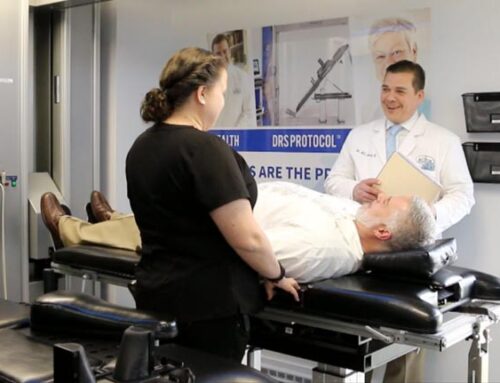If you’re one of the estimated 51.6 million Americans dealing with chronic pain, you know all too well how debilitating it can be. One of the most common areas affected is the neck—a critical structure tasked with the hefty job of supporting your head.
But not all neck pain is created equal. It can manifest in various forms, each with its own set of symptoms, causes, and treatment options. Whether you’re struggling with a stiff neck from a poor night’s sleep or dealing with more severe, chronic discomfort, understanding the type of neck pain you have is the first step toward finding relief.
Let’s take a look at the different types of neck pain, exploring their causes, symptoms, and most importantly, how you can treat them effectively.
Muscle Pain
Muscle pain is a common cause of neck discomfort and can result from a variety of factors such as poor posture, muscle strain, or tension. Often experienced as a dull ache or tightness, this type of neck pain can also be accompanied by stiffness and limited range of motion. Activities like prolonged computer use, carrying heavy bags, or even sleeping in an awkward position can contribute to muscle-related neck pain. The discomfort often originates from the muscles, ligaments, or tendons in the neck and can radiate to other areas like the shoulders and upper back.
Pain Relief for Neck Muscles
Muscle pain can take a while to heal. Seeing a chiropractor can help reduce your healing time. Spinal realignment takes tension off the muscles and allows them to work properly. It can help reduce inflammation in the area.
At home, treat your symptoms and help this process along by alternating ice and heat to your neck. Gentle neck stretches may also help the muscles recover quicker.
Be sure to talk to your chiropractor before performing any neck exercises
Nerve Pain
Nerve pain can be a significant contributor to neck discomfort, often manifesting as sharp, shooting pains, tingling, or numbness that may extend to the shoulders or arms. This type of pain usually arises from issues like pinched nerves, herniated discs, or spinal stenosis, which place undue pressure on the spinal nerves. The irritation or compression of these nerves can disrupt their function, leading to the symptoms commonly associated with nerve pain.
Pain Treatment for Nerve Damage in the Neck
Treating neck pain caused by nerve damage can be a complex process, but chiropractic care offers a non-invasive and holistic approach that many find beneficial. Nerve damage in the neck can result from various factors such as herniated discs, spinal stenosis, or degenerative disc disease, leading to symptoms like sharp pain, tingling, and numbness. A chiropractor can perform a thorough evaluation to identify the root cause of the nerve damage and develop a tailored treatment plan. Techniques such as the DRS Protocol™ can help alleviate pressure on the affected nerves, improve spinal alignment, and promote natural healing.
Additionally, chiropractors often incorporate therapies like electrical stimulation, heat/cold therapy, and rehabilitative exercises to enhance the treatment’s effectiveness. By addressing the underlying issues, chiropractic care aims to provide long-term relief from nerve-related neck pain.
Bone Pain
Bone pain in the neck can be a significant source of discomfort and can severely impact your quality of life. Conditions like osteoarthritis, bone spurs, or even fractures can lead to bone-related neck pain. These issues can cause inflammation and stiffness in the cervical spine, limiting your range of motion and leading to persistent pain. The discomfort can also radiate to other areas, such as the shoulders or upper back, further complicating daily activities. Understanding the specific cause of your bone-related neck pain is crucial for effective treatment and long-term relief.
Treatment for Vertebrae Pain
For those experiencing vertebrae pain, chiropractic care offers a non-invasive treatment option. One specialized approach within chiropractic care is the DRS Protocol™, which stands for Decompression, Reduction, and Stabilization. This technique focuses on alleviating pressure on the spinal discs and nerves, aiming to restore the affected vertebrae to their optimal function. The DRS Protocol™ utilizes spinal decompression techniques to relieve compression on the spinal column. By targeting the root cause of the vertebrae pain, chiropractic care aims to provide long-term relief without the need for medication or surgery.
Chiropractics Helps All Types of Neck Pain
Whether you’re dealing with nerve pain, vertebrae discomfort, or muscle tension, chiropractic care offers a comprehensive and non-invasive approach to treating various types of neck pain. From specialized techniques like the DRS Protocol™ for vertebrae issues to spinal adjustments and soft tissue manipulation for muscle and nerve pain, chiropractic treatments aim to address the root cause of your discomfort. By offering a range of tailored therapies and exercises, chiropractic care not only provides immediate relief but also focuses on long-term solutions to improve your neck health and overall well-being.
We care about your comfort at Busch Chiropractic. Request your first appointment to relieve neck pain and kickstart your healing!





